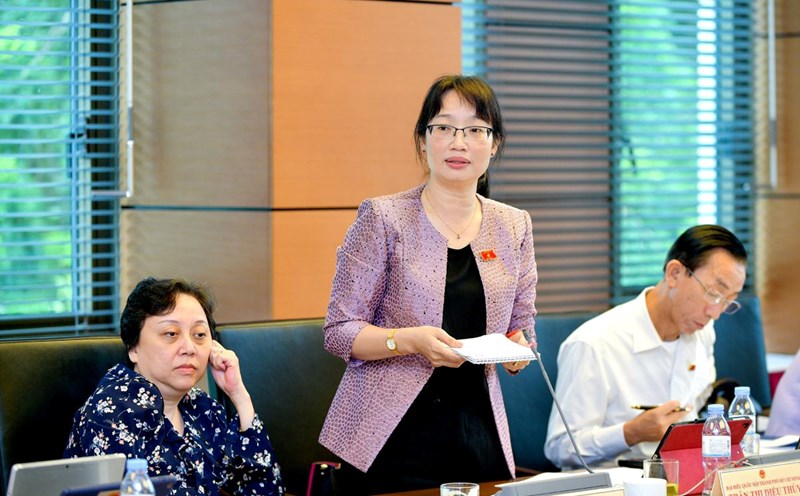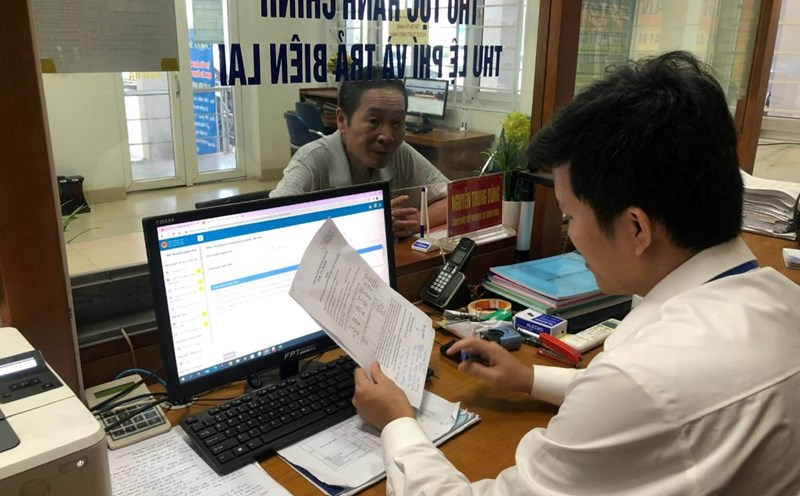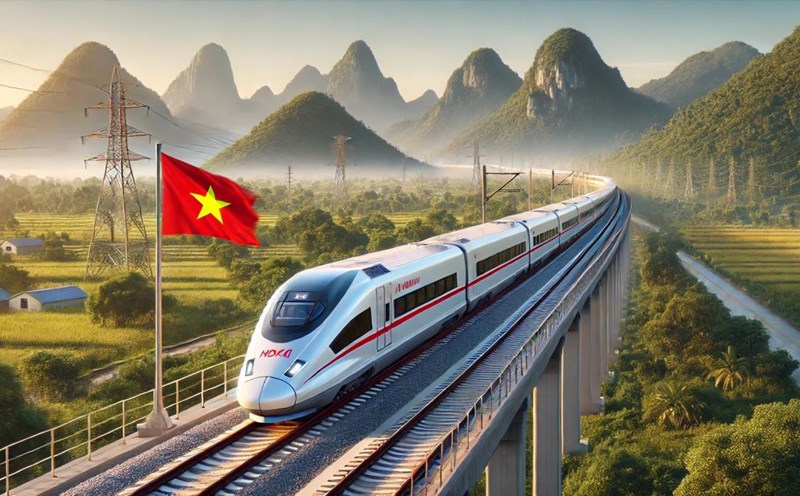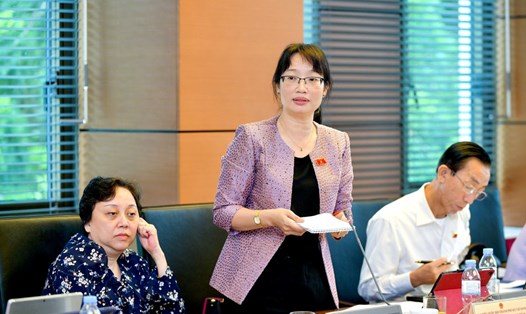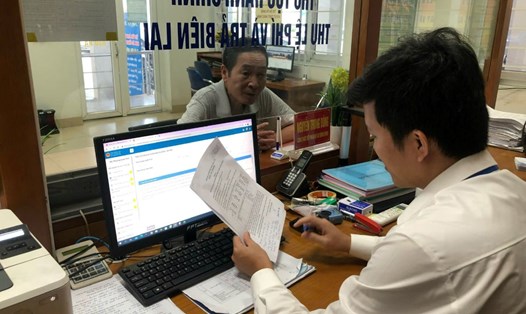Proposed to start construction by the end of 2026
On the morning of November 13, the National Assembly discussed in groups the investment policy for the high-speed railway project on the North-South axis.
Delegate Thach Phuoc Binh (Tra Vinh delegation) was concerned about the railway route passing through 20 provinces and cities with not too high population density. Meanwhile, the expected ticket price is 2 million VND.
Delegates analyzed that if traveling at 350km/h, it would take about 6-7 hours to travel from Hanoi to Ho Chi Minh City. "With such a ticket price, it is difficult to compete with Vietjet Air," said the delegate.
Also discussing this content, delegate Lai The Nguyen (Thanh Hoa) said that implementing the North-South high-speed railway project at this time is appropriate, solving essential traffic infrastructure, opening up development space.
If the project is implemented at a speed of 350km/h, the delegate gave an example of going from Thanh Hoa to Hanoi taking only about 30 minutes instead of 2 hours as it does now. If going to Ho Chi Minh City, many people will choose the high-speed railway.
Mr. Nguyen further cited the fact that it takes 1 hour and 45 minutes to travel from Tho Xuan Airport (Thanh Hoa) to Ho Chi Minh City. However, the travel time from the departure point to the airport takes 1 hour, plus 1 hour waiting for procedures. Including the time for flight delays, the delegate said it would take 5-6 hours to get to Ho Chi Minh City.
Meanwhile, Thanh Hoa delegates said that traveling by rail will have simple procedures and travel time will not be less than traveling by plane.
Delegates suggested that the project's construction start date could be earlier than expected, around the end of 2026.
Worried about project cost overrun and slow progress
Delegate Hoang Van Cuong (Hanoi Delegation) said that the high-speed railway project will create connectivity and spread in socio-economic development, avoiding the current situation of only focusing on a few large provinces and cities along the country.
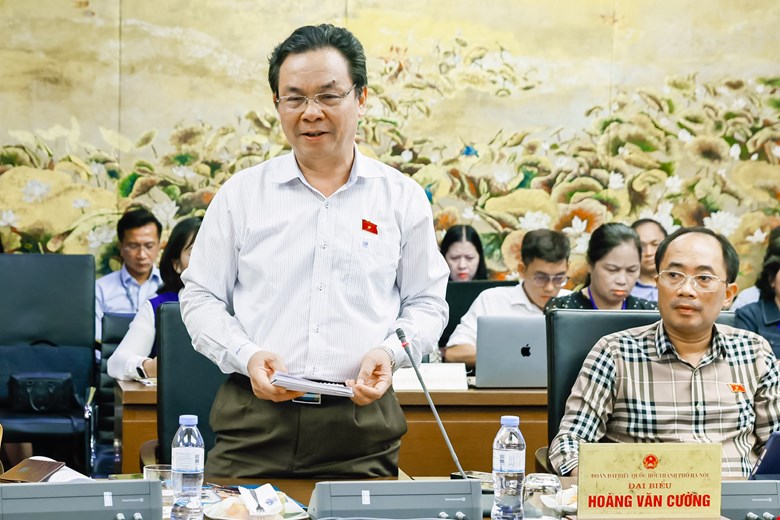
Regarding investment methods, delegates cited the cases of urban railway projects such as Cat Linh - Ha Dong, Nhon - Hanoi Railway Station, Ben Thanh - Suoi Tien, which have been behind schedule for many years and have exceeded budget, to express their concerns.
"Which country we cooperate with is not important, but we need to transfer technology to Vietnam. Only then can we ensure that the project is implemented on schedule. If we cannot do this, from investment to operation, repair, and warranty, we will have to depend on others, which may become a "debt" later on," the delegate stated.
Delegates also noted that this high-speed railway project needs to take into account the actual needs of localities that currently do not have airports, because this will be a supplementary method for aviation.
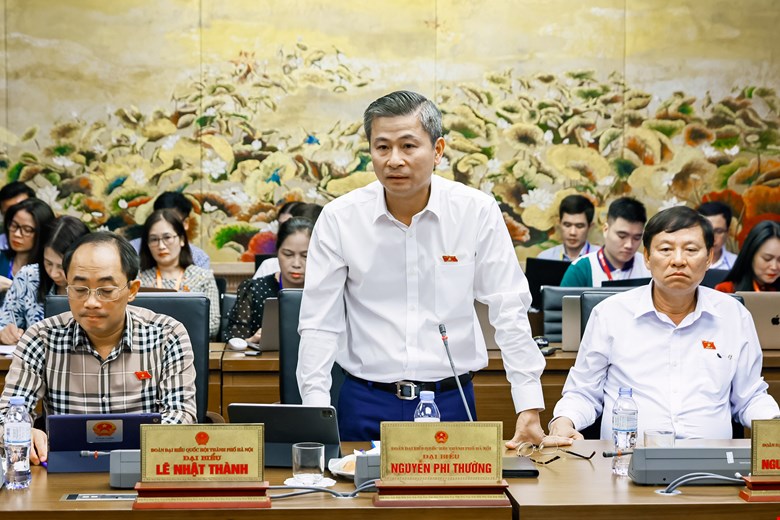
Delegate Nguyen Phi Thuong (Hanoi Delegation) said that the project with a total investment of more than 67 billion USD, with an annual allocation of more than 6 billion USD, is a very large number. However, this is identified as a symbolic project, a driving force for the country's development in the new period.
"If the project is implemented well, it will play a role in promoting socio-economic development. If there are risks in the implementation, we will have to deal with the consequences in the future," said delegate Nguyen Phi Thuong.
He also agreed with delegate Hoang Van Cuong on the need for technology transfer.
The delegate also mentioned that current urban railway projects do not have common technical standards, each project is the technology of one country.
Regarding the issue of capital overruns, the delegate said that even in the US, railway projects have cost 2.2 times more than the original. In the country, urban railway projects have all cost overruns.
"Therefore, proposing a total investment of more than 67 billion USD requires many accompanying solutions" - the delegate stated his opinion.

